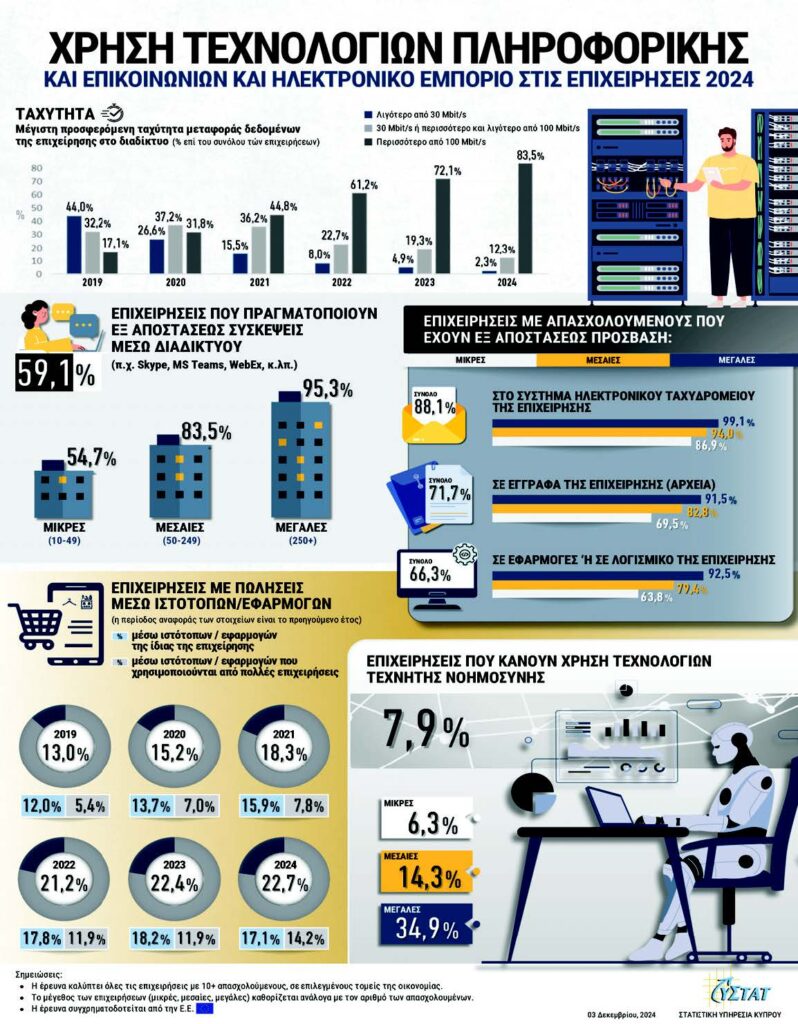Filenews 26 March 2025 - by Evagoras Prokopiou
The Cyprus Statistical Service has published the results of the Survey on the Use of Information and Communication Technologies (ICT) and E-Commerce in Enterprises 2024, capturing the largest integration of digital technologies in the country's businesses.
REMOTE WORK AND USE OF MOBILE DEVICES
• 84.1% of enterprises with 10 or more employees provided their employees with mobile devices capable of connecting to the internet via mobile networks.
• 88.1% of enterprises allow remote access to e-mail, while 71.7% provide access to corporate documents and 66.3% to business applications (e.g. CRM, accounting programs).
E-COMMERCE: STEADY GROWTH
• 23.5% of businesses received orders through computer networks.
• 22.7% of businesses used websites or apps to sell products and services.
• 21.2% of businesses received orders from private consumers, while 11.4% from other businesses or public authorities.
ONLINE ADVERTISING: SIGNIFICANT GROWTH
• 49.4% of businesses paid for online advertising in 2024, twice as much as in 2016.
• The most popular strategies include geo-targeted ads (43.5%), user-search-based ads (38.4%), and ads based on browsing history (28.7%).
SPECIALISED ICT STAFF AND SKILLS
• 27.5% of enterprises employ ICT specialists, with the percentage reaching 85.8% in large enterprises.
• Only 15.3% of enterprises provided training to specialized ICT personnel, while 27.0% trained non-specialized personnel.
• 12.2% of enterprises tried to recruit ICT personnel, but 6.4% struggled due to a lack of available skilled workers.
ICT SECURITY
• 95% of businesses use strong passwords for system security.
• 90% apply data backup.
• 73.9% use network access control, while 67.3% have a VPN.
INCREASED USE OF ARTIFICIAL INTELLIGENCE (AI) IN ENTERPRISES
• 7.9% of businesses used artificial intelligence in 2024, compared to 4.7% in 2023.
• AI is most prevalent in large enterprises (34.9%), followed by medium-sized enterprises with 14.3% and small enterprises with 6.3%.
• A I technologies adopted include text mining, machine learning and deep learning.
The digital transition of Cypriot businesses is accelerating, with an increase in the use of artificial intelligence, e-commerce and online advertising, although challenges remain in terms of the availability of skilled ICT personnel.

